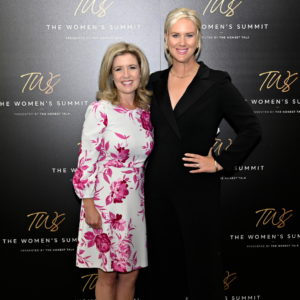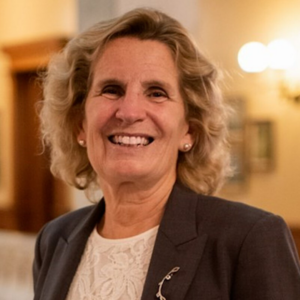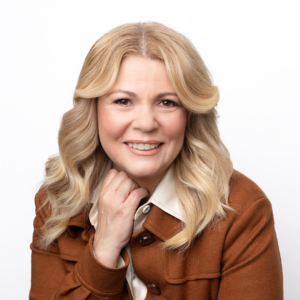How joni is flipping the script on period care in Canada
Health26.03.2025
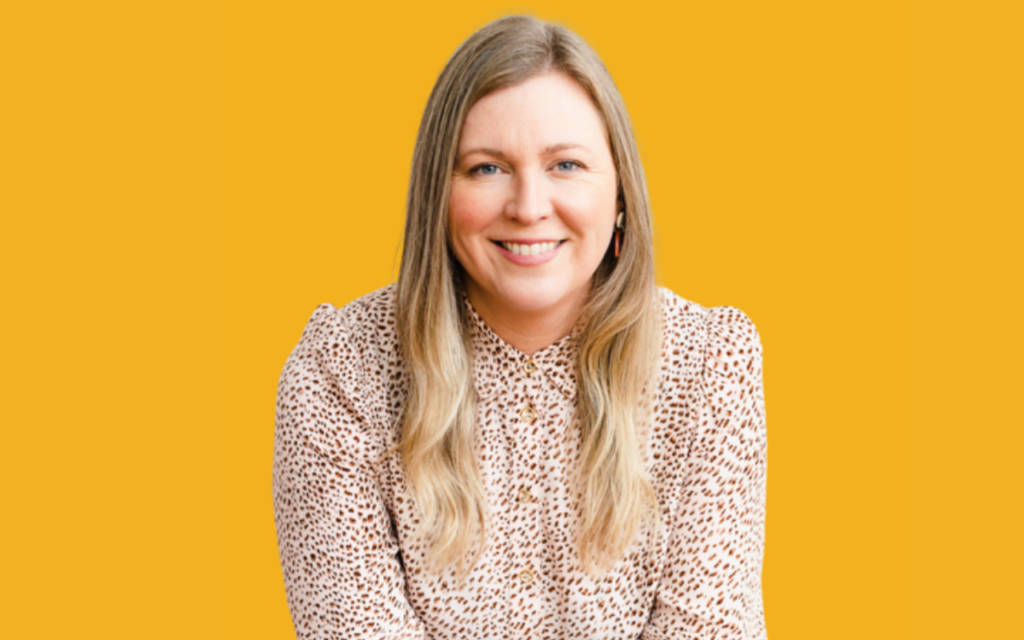
When Linda Biggs and her business partner Jayesh Vekariya launched joni five years ago, they weren’t just starting a business – they were on a mission to transform the period care industry in Canada.
Frustrated by the lack of choice around menstrual products, Biggs set out to create a brand that prioritized sustainability, affordability, and equity.
But the journey wasn’t easy.
“Our first year was rough,” she admits. “We almost didn’t make it.” Launching in the middle of the COVID-19 pandemic meant joni faced immediate challenges. Yet, with unwavering commitment and a clear vision, the company not only survived but thrived, doubling revenues yearly and seeing 300 per cent growth in 2024.
Today, as joni celebrates its fifth anniversary, the brand has become a force in the industry – pushing boundaries on sustainable period care, advocating for menstrual equity, and proudly waving the flag as a Canadian company in an industry dominated by multinational giants.
So, how is joni innovating period care?
Joni’s products are made from plant-based, organic, biodegradable materials and contain no harsh chemicals. They are also housed in compostable wrappers and recyclable packaging – something Biggs said was key when developing the brand.
“We often are made to feel like quality, organic period care is a luxury, and it really shouldn’t be,” she said. “Not everyone is interested in reusable products, and there is no shame in buying disposable period care. But there needs to be a push for innovation in the industry, and that’s what we’re doing.”
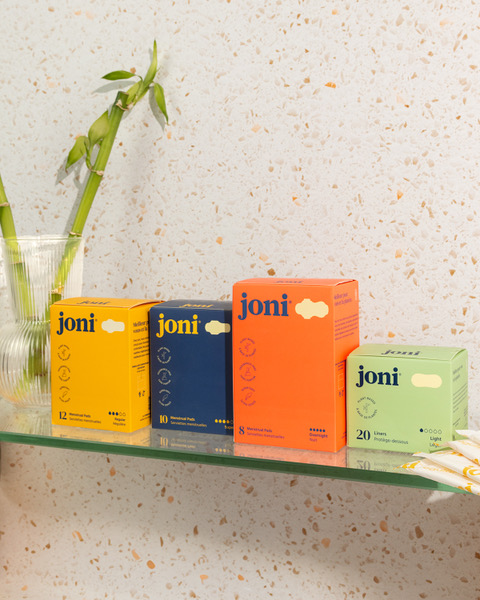
As a certified B Corp, joni also ensures that any overseas partners it works with are as committed to having a positive social impact as they are, making sure that quality, health, safety, and accountability, as well as diversity and environmental responsibility are always top of mind.
But, joni’s mission doesn’t stop with sustainability.
At its core, the British Columbia-based company is driven by a passion for menstrual equity – something Biggs understands all too well.
“Growing up, we waited in food bank lines, and we didn’t always have the money for the tampons that I needed as a swimmer,” she explained. “But I never thought about why. It wasn’t until I was older that I really questioned: Why do we have period poverty in Canada? Why is it that one in three women under the age of 25 still can’t afford period care?”
Biggs said the joni team worked hard to find a price point for its products that was fair and within reach for people, no matter where they lived.
“What about the millions of customers that are in very remote areas that pay 40 plus dollars for a box of pads?” said Biggs. “We found a way to plug ourselves into the mailing system and give them the same free shipping someone in an urban center would receive. That, for me, is equitable access to period care.”
The team also works closely with various nonprofits and community organizations, such as The Period Purse and Moon Time Connections, to help the fight against period poverty in Canada. To date, joni has donated nearly one million period products to the community, as well as five per cent of the company’s annual earnings.
Let’s talk about periods
While joni was initially the only Canadian disposable period care brand on the shelves, others have since followed suit – a clear sign to Biggs that customers are looking for more from their period care providers.
And while direct-to-consumer sales remain a key part of joni’s business, the company’s commercial partnerships have been driving serious growth.
Joni works with businesses and institutions to install period product dispensers in the washrooms, putting tampons and pads within reach at the office. As Biggs points out, 87 per cent of people who menstruate get caught off guard, and 37 per cent will have to leave school or work to find a solution.
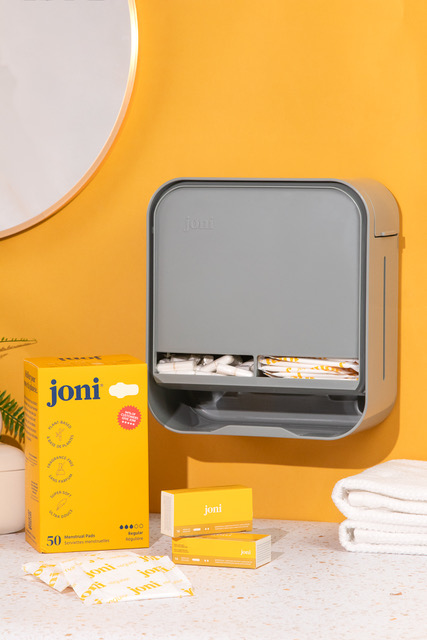
“The biggest impact we can make is actually bringing period care out into the light,” said Biggs. “We don’t carry around toilet paper with us everywhere we go, so let’s afford the 30 per cent of the population that menstruates the same access and dignity.”
An eye to the future
Joni’s commitment to Canada has also shaped its business philosophy.
While many startups are urged to expand into the U.S. early, Biggs deliberately chose to focus on Canada first, something that has helped the business through these past few months of tariff chaos.
“It felt for a long time like we were missing out, like we weren’t moving fast enough, like we weren’t making the right decisions, or we weren’t going to get the same opportunities because we weren’t moving into the U.S.,” she said. “But we learned early on that sometimes, putting your blinders on and just following your own path is the best way forward.”
As joni celebrates its fifth anniversary, Biggs is proud of how far the company has come – but she’s even more excited for the future.
“I’m actually really optimistic about it, and we’re somewhat bullish about it,” she said. “I’m unapologetic about saying that we are growing and want joni to be a household name. I think that is important for me to say as a female founder and CEO.
“It takes so much time for a brand to get going. It’s like that flywheel that takes so much energy to crank. But now, we’re seeing that crank going a little bit easier, and we’re really leaning into that.”










